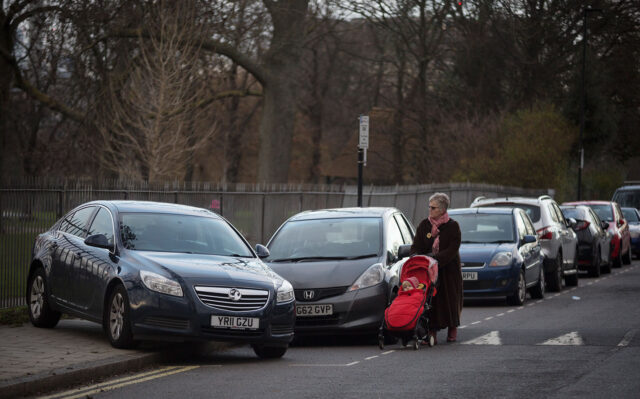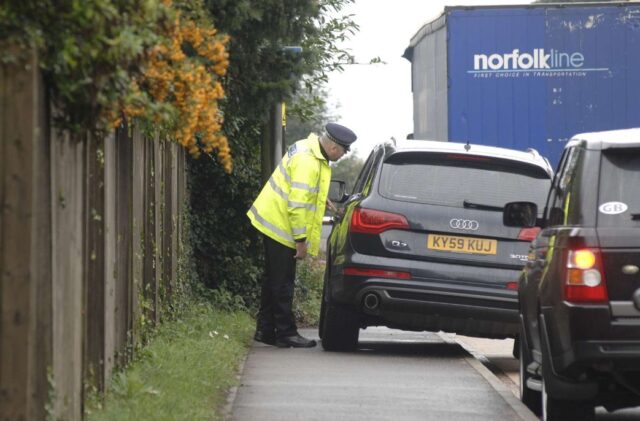
Is it difficult for visitors to enter your place of business or property because of pavement parking? Learn how to effectively prevent cars from parking on pavements.
If pavement parking is not properly controlled, it can seriously disrupt residents, businesses, and pedestrians. Business owners can resolve parking conflicts with the assistance of a car park management company, while local authorities are available to assist with obstructive pavement parking in residential areas.
The Problem with Pavement Parking

When a car is parked totally or partially on the pavement, it is referred to as parking on the pavement.
For a variety of reasons, drivers may park on the pavement. Typically, motorists try to park as close to their place of residence, place of employment, or final destination as they can while preventing emergency vehicles from accessing the area or hindering traffic.
Many times, parking on the road may be a driver’s only option. As a result, many drivers may imitate those who have already parked there, which can exacerbate the issue.
However necessary it may be to avoid obstructing other vehicles, parking on the pavement might make it difficult or impossible for walkers to use it safely.
Parking on the Pavement is Risky and Challenging
In order to be secure and away from hazards that can push them into the road, pedestrians depend on pavements. People with mobility issues, people who are blind or visually impaired, people who are walking with pushchairs, toddlers, guiding dogs, or people who are using mobility aids are most affected by the problem of pavement parking.
If you operate a business, parking on public pavements can bring special difficulties.
It may be difficult for pedestrians, especially those with mobility issues, to enter your home if the pavement outside your property is blocked. Additionally, parking on the pavement in front of your establishment can obscure its exterior, making it challenging for potential customers to locate it.
What Legal Action Can Be Taken to Prohibit Parking on Pavements?

Pavement parking is currently prohibited in big UK cities like Manchester, Newcastle, Birmingham, and London. Drivers who break this law risk fines of up to £130. Additionally, Scotland is now enacting legislation to outlaw pavement parking nationwide.
The Department for Transport of the British Government has made progress on enforcing pavement parking regulations to safeguard pedestrian safety nationwide.
Pavement parking may be prohibited by local authorities in their jurisdictions, albeit frequently they lack the funding to do so.
In many cases, parking on the pavement may be the only practical choice to prevent hindering other vehicles’ access, making it a complex issue. As a result, a lot of authorities are pressing for street-by-street assessments. ANPR systems allow establishments to crack down on pavement parking through the use of CCTV technology.
You can manage the occurrence of payment parking outside or close to your property by taking a few legal actions. The ability to impose a ban on parking violations like parking on the pavement remains with the local authorities. A local discussion regarding pavement parking laws might be sparked by gathering proof of the problem and submitting it to your local council.

Final Thoughts
Pavement parking is a complex issue. It can cause a variety of problems for pedestrians, business owners, and local authorities.
It is important for business owners to understand their local parking regulations to ensure that visitors can access their property safely and without obstruction. Additionally, it is wise to take the necessary legal measures to prevent cars from parking on pavements outside your place of business.
Ultimately, it is the responsibility of the local government to enforce and regulate pavement parking laws. However, business owners and residents alike can take action to help keep pavements free of cars.







